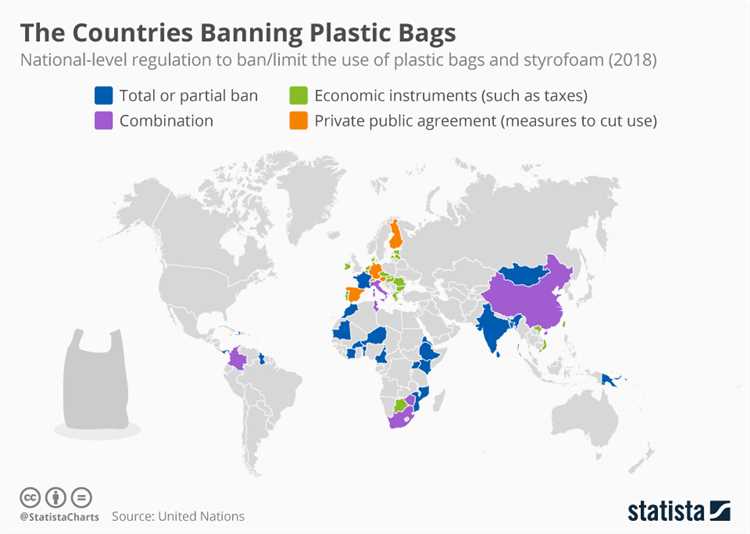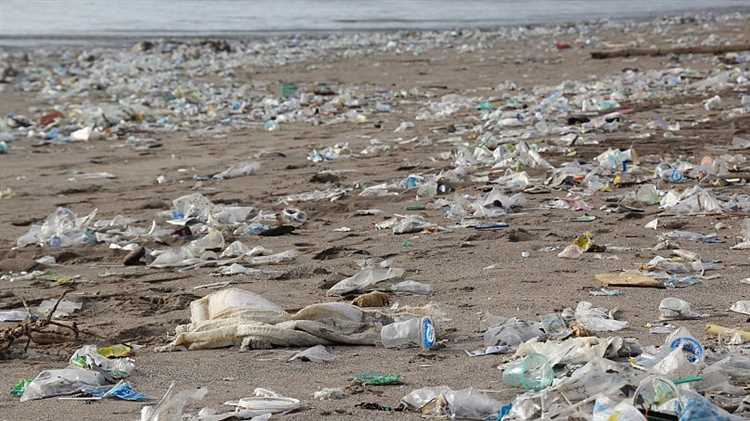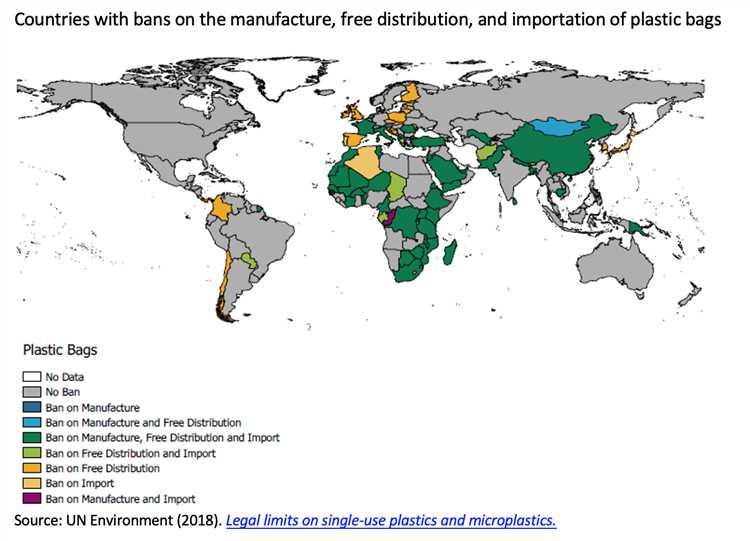In recent years, there has been a growing global concern over the environmental impact of plastic bags. These lightweight and convenient carriers have become ubiquitous in our daily lives, but their durability and slow degradation make them a major contributor to pollution and harm to wildlife. As a result, many countries around the world have started implementing regulations to reduce the use of plastic bags and encourage more sustainable alternatives.
Plastic bag regulations can take different forms, ranging from outright bans to fees and taxes on their usage. The goal is to discourage consumers from relying on these single-use items and instead promote the use of reusable bags or other environmentally friendly options. By imposing these regulations, countries hope to minimize the negative effects of plastic bag waste on their ecosystems and move towards a more sustainable future.
Currently, numerous countries have implemented some form of plastic bag regulations. This includes countries from all continents, showing a global recognition of the need to address this issue. While the specific regulations vary from one country to another, they all share the common goal of reducing plastic bag consumption and ultimately decreasing plastic pollution.
How many countries have actually enacted plastic bag regulations? The exact number can vary depending on the source, as new regulations may be implemented or updated over time. However, according to recent estimates, over 120 countries have taken action to control the use of plastic bags. These countries include major economies like China, France, Italy, the United Kingdom, and Canada, as well as smaller nations from Asia, Africa, and the Americas.
The impact of these regulations has already been significant, with reduced plastic bag usage observed in various countries. This has not only led to a decrease in plastic waste and litter but has also encouraged the development and adoption of innovative alternative solutions. As the world continues to grapple with the environmental consequences of plastic pollution, the implementation of plastic bag regulations serves as an important step towards a cleaner and more sustainable future.
- Overview of Global Plastic Bag Regulations
- Bans on Plastic Bags
- Regulations and Fees
- How Many Countries Have Banned or Regulated Plastic Bags?
- The Impact of Plastic Bags on the Environment
- The Benefits of Plastic Bag Regulations
- 1. Environmental Protection
- 2. Reduction in Resource Consumption
- 3. Waste Management Improvement
- Question-answer:
- How many countries have banned plastic bags?
- What are the reasons behind banning plastic bags?
- What are some alternatives to plastic bags?
- What are the penalties for violating plastic bag regulations?
Overview of Global Plastic Bag Regulations

Plastic pollution is a growing concern around the world, and plastic bags have been identified as a major contributor to this problem. In response, many countries have implemented regulations to ban or restrict the use of plastic bags in order to reduce their environmental impact.
Currently, more than 190 countries have implemented some form of regulation on the use of plastic bags. These regulations vary in scope and severity, with some countries implementing complete bans on plastic bags, while others impose fees or taxes on their use.
Bans on Plastic Bags

Several countries have enacted complete bans on plastic bags, prohibiting their production, distribution, or use. This includes countries such as Kenya, Rwanda, and Bangladesh, which have shown strong commitment to tackling plastic pollution. These bans have been effective in reducing plastic bag usage and promoting the use of reusable alternatives.
Regulations and Fees
Other countries have implemented regulations and fees to discourage the use of plastic bags. For example, in countries like Ireland, Germany, and Australia, plastic bags are still available, but customers are required to pay a fee for each bag they use. This has been successful in reducing plastic bag consumption and encouraging the use of reusable bags.
Additionally, some countries have introduced regulations that require retailers to provide biodegradable or compostable bags instead of traditional plastic bags. These bags are designed to break down over time, reducing their environmental impact.
Overall, global efforts to regulate plastic bag usage have been effective in reducing plastic pollution and promoting sustainable alternatives. However, there is still work to be done to ensure that all countries adopt similar regulations and work towards a plastic-free future.
How Many Countries Have Banned or Regulated Plastic Bags?
Plastic bags are one of the most common and harmful types of waste found in our environment. They take hundreds of years to decompose and can cause immense damage to wildlife and ecosystems. In response to these concerns, many countries around the world have taken measures to regulate or ban the use of plastic bags.
As of now, more than 127 countries have implemented some form of plastic bag regulations. These regulations vary in their scope and severity, but they all aim to reduce the negative impact of plastic bags on the environment.
Some countries have chosen to completely ban the use of plastic bags. For example, Rwanda was one of the first countries to implement a nationwide ban on plastic bags in 2008. Other countries that have followed suit include Bangladesh, China, and Kenya.
Many countries have opted for less strict regulations, such as imposing taxes or fees on plastic bags. The United Kingdom, for instance, introduced a plastic bag tax in 2015, and since then, the number of plastic bags distributed by retailers has declined significantly.
Several countries have also implemented recycling programs or mandatory labeling requirements for plastic bags. These measures help to promote responsible use and disposal of plastic bags.
It’s important to note that while many countries have taken steps to regulate or ban plastic bags, enforcement of these regulations can vary. Some countries struggle to effectively enforce the rules, which can limit their impact.
In conclusion, the number of countries that have banned or regulated plastic bags continues to grow. These efforts reflect a global recognition of the need to address the environmental consequences of plastic bag waste and promote more sustainable alternatives.
The Impact of Plastic Bags on the Environment
Plastic bags have become a significant environmental issue worldwide due to their wide usage and disposal practices. Although plastic bags are convenient and durable, their negative impacts on the environment are extensive.
One of the main concerns regarding plastic bags is their contribution to pollution. Plastic bags are not easily biodegradable and can take hundreds of years to decompose. As a result, they end up occupying landfill space and accumulating in the environment. These bags can also be carried by the wind and water, leading to littering in natural habitats such as forests, rivers, and oceans.
Not only do plastic bags pollute the environment, but they also pose a severe threat to wildlife. Marine animals, in particular, are affected by plastic bag pollution. Sea turtles, dolphins, and birds often mistake plastic bags for food and ingest them. This can lead to various health issues, including choking, internal injuries, and even death. Additionally, plastic bags can entangle animals, causing suffocation and hindering their ability to swim or fly.
Plastic bags also contribute to climate change. The production of plastic bags requires the extraction of fossil fuels, such as oil and natural gas. The extraction and transportation of these fuels release greenhouse gases into the atmosphere, leading to global warming and climate change. Moreover, when plastic bags are incinerated, they release toxic pollutants that further contribute to air pollution and climate change.
| Environmental Impacts of Plastic Bags | Consequences |
|---|---|
| Pollution and littering | Landfill space occupation, accumulation in natural habitats |
| Threat to wildlife | Ingestion, choking, entanglement, suffocation |
| Contribution to climate change | Greenhouse gas emissions, air pollution |
In conclusion, plastic bags have a profound impact on the environment. Their contribution to pollution, threat to wildlife, and contribution to climate change make them a significant environmental concern. It is essential for governments and individuals worldwide to work towards reducing plastic bag usage and implementing sustainable alternatives in order to mitigate these negative effects.
The Benefits of Plastic Bag Regulations

Plastic bag regulations have become increasingly common around the world due to the numerous benefits they offer. These regulations aim to reduce the usage and disposal of plastic bags, which have significant environmental and health impacts. Here are some of the key benefits that come with implementing plastic bag regulations:
1. Environmental Protection
Plastic bag regulations help to protect the environment by reducing litter and pollution. Plastic bags are lightweight and easily carried by wind and water, leading to them being scattered in landscapes and water bodies. This not only mars the beauty of natural areas but also poses a significant threat to wildlife. Marine animals and birds often mistake plastic bags for food and can suffer injury or death from ingestion or entanglement. By regulating plastic bags, countries can prevent these hazards and work towards preserving their natural ecosystems.
2. Reduction in Resource Consumption

Plastic bag regulations promote the efficient use of resources. Plastic bags are made from petroleum-based materials, which require large quantities of fossil fuels for production. By reducing the usage of plastic bags, countries can significantly cut down their reliance on non-renewable resources. This helps in conserving natural resources and reducing carbon emissions associated with the extraction and processing of fossil fuels.
3. Waste Management Improvement
Plastic bag regulations contribute to improved waste management systems. Plastic bags are a major component of litter and waste streams, posing challenges for waste management and recycling efforts. By placing restrictions on plastic bags, countries can encourage the adoption of more sustainable alternatives like reusable bags or biodegradable options. This shift can significantly reduce the burden on waste management facilities, promoting better waste diversion and recycling rates, and reducing the amount of plastic ending up in landfills or incineration centers.
In conclusion, plastic bag regulations have numerous benefits, encompassing environmental, resource, and waste management aspects. By implementing these regulations, countries can mitigate the negative impacts of plastic bags and work towards a more sustainable future.
Question-answer:
How many countries have banned plastic bags?
As of October 2021, at least 127 countries have implemented some form of regulation on plastic bags. This includes total bans, partial bans, and fees or taxes on the use of plastic bags.
What are the reasons behind banning plastic bags?
There are several reasons behind the banning or regulating of plastic bags. One of the main reasons is the environmental impact of these bags. Plastic bags are non-biodegradable and can take hundreds of years to decompose. They also cause harm to wildlife, as animals can mistake them for food or get entangled in them. Additionally, plastic bags contribute to pollution and can clog drainage systems and waterways. Banning or regulating plastic bags is seen as a way to reduce waste, protect the environment, and promote sustainable alternatives.
What are some alternatives to plastic bags?
There are several alternatives to plastic bags that can be used. Some popular options include reusable bags made from cloth, canvas, or jute. These bags are durable and can be used multiple times, reducing the need for single-use plastic bags. Paper bags are also an alternative, as they are biodegradable. However, it’s important to note that paper bags also have environmental impacts, as their production requires tree cutting and energy consumption. Other alternatives include biodegradable or compostable bags made from materials like cornstarch or other plant-based materials.
What are the penalties for violating plastic bag regulations?
The penalties for violating plastic bag regulations vary depending on the country or region. In some cases, individuals may be fined for using or distributing plastic bags that are prohibited. The fines can range from small amounts to more significant penalties. Some places have also implemented educational or awareness campaigns to help people understand the importance of reducing plastic bag usage and the potential consequences of violating the regulations.